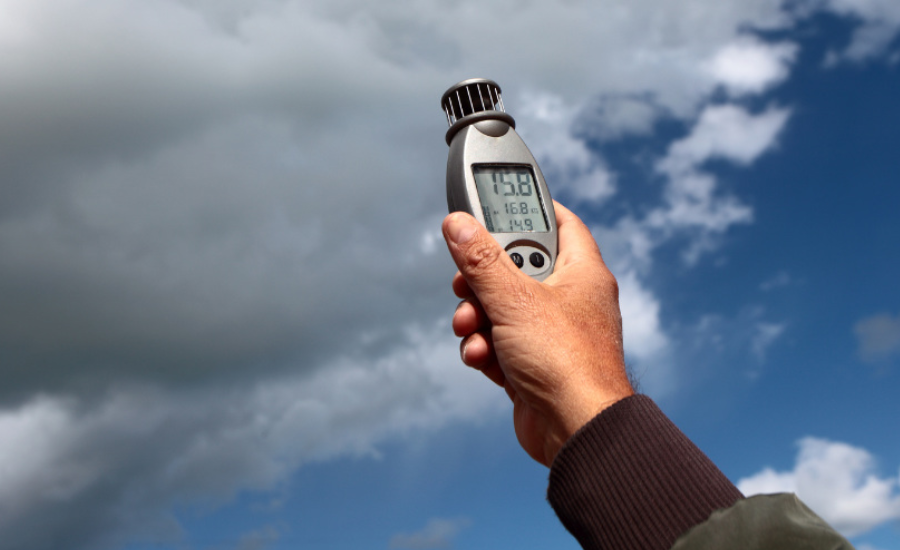Introduction
Ever wondered how to gauge your emotional well-being? Enter the Emometre—an innovative tool designed to assess emotional health. This article explores the concept of the Emometre, its functions, and its significance in maintaining a balanced and fulfilling life. By enhancing your emotional understanding, you can improve mental health, foster better relationships, and elevate overall happiness.
What is an Emometre?
Historical Background
The idea of measuring emotions has ancient roots. Philosophers and early medical practitioners have long sought to understand human emotional states. The term “Emometre,” however, is a recent innovation, representing a range of techniques used to quantify emotional experiences.

Modern Definition
An Emometre is a device or method used to evaluate and analyze emotional health. This can include simple self-assessment questionnaires or advanced wearable technologies that track physiological responses such as heart rate and skin conductivity.
How Emometres Work
The Science Behind Emometres
Emometres operate on the understanding that emotions are complex and multi-dimensional. They integrate psychological theories with practical tools to measure various aspects of emotional health, including awareness, regulation, and expression.

Types of Emometres
- Self-Report Questionnaires: These are standardized surveys where individuals rate their emotions on different scales. Examples include the Positive and Negative Affect Schedule (PANAS) and the Emotional Regulation Questionnaire (ERQ).
- Behavioral Observation: This method involves monitoring and recording behaviors in various situations to infer emotional states. It is often utilized in clinical settings and research.
- Physiological Measurements: These tools assess physiological responses like heart rate variability, skin conductivity, and brain activity. Wearable devices and specialized sensors are examples of this type.
Why Emotional Health Matters
Impact on Physical Health
Emotional health plays a crucial role in physical well-being. Persistent stress and unmanaged emotions can contribute to health issues such as cardiovascular disease, hypertension, and a compromised immune system.
Social Relationships
Effective emotional regulation fosters strong relationships by enhancing communication, empathy, and conflict resolution skills.
Work and Productivity
Individuals with good emotional health are generally more productive and satisfied in their work. They handle stress better, make informed decisions, and collaborate more effectively with others.
Components of Emotional Health
- Emotional Awareness: Recognizing and understanding one’s emotions and their impact on thoughts and behaviors.
- Emotional Regulation: Managing and responding to emotions in a healthy manner using techniques like mindfulness, deep breathing, and cognitive restructuring.
- Emotional Expression: Communicating emotions appropriately through verbal and non-verbal means, such as facial expressions and body language.
Applications of Emometres
- Clinical Psychology: Used by psychologists to diagnose and treat emotional disorders, creating personalized treatment plans and tracking progress.
- Workplace Wellness Programs: Emometres are integrated into wellness programs to improve employee well-being, reduce burnout, and boost productivity.
- Personal Development: Individuals use Emometres to track emotional health, identify areas for improvement, and enhance their overall well-being.
Advantages of Using Emometres
- Early Detection of Emotional Issues: Identifies early signs of emotional distress, allowing for timely intervention.
- Tailored Interventions: Facilitates the creation of personalized support strategies based on individual needs.
- Enhanced Self-awareness: Regular use increases self-awareness, helping users understand emotional patterns and triggers.
Challenges and Limitations
- Accuracy and Reliability: The effectiveness of Emometres can vary, affecting the validity of results.
- Privacy Concerns: Handling and storing emotional data raises privacy issues, necessitating robust data protection measures.
- Cultural Differences: Emotional experiences and expressions vary across cultures, complicating the creation of universally applicable tools.
Innovations in Emometres Technology
- AI and Machine Learning: These technologies enhance the accuracy and personalization of Emometres, providing more precise insights into emotional health.
- Wearable Devices: Smartwatches and fitness trackers offer real-time monitoring of physiological responses, supporting continuous emotional health assessment.
- Mobile Applications: Apps for emotional health tracking are growing in popularity, offering a convenient way to manage emotions daily.
Case Studies
- Successful Implementation in Schools: Schools that have adopted Emometres report improved student well-being, better academic outcomes, and fewer behavioral issues.
- Use in Corporate Settings: Companies integrating Emometres into their wellness programs observe higher employee engagement, reduced turnover, and increased productivity.
How to Choose the Right Emometre
Factors to Consider
When selecting an Emometre, consider ease of use, accuracy, data privacy, and the specific needs of the user.
Recommendations
Research various Emometres and review user feedback to find the best fit. Consulting a professional can also help in making an informed choice.
Future of Emometres
Trends to Watch
The future of Emometres is promising with trends like AI integration, advanced wearables, and enhanced data analytics on the horizon.
Potential Developments
Advances in neuroscience and technology are expected to lead to more accurate and user-friendly Emometres, making emotional health monitoring more accessible.
Tips for Improving Emotional Health
Daily Practices
- Incorporate Mindfulness
- Mindfulness Meditation: Engage in mindfulness meditation to enhance your awareness of the present moment. Practicing mindfulness can reduce stress, increase emotional resilience, and improve overall mental clarity. Start with just 5-10 minutes a day and gradually increase as you become more comfortable.
- Mindful Breathing: Use mindful breathing techniques to manage anxiety and emotional overwhelm. Focus on your breath, noticing each inhale and exhale, to center yourself and reduce feelings of stress.
- Mindful Eating: Pay attention to the sensory experience of eating. Eating mindfully helps improve your relationship with food, enhances digestion, and reduces emotional eating.
- Regular Exercise
- Physical Activity: Incorporate regular physical activity into your routine, such as walking, jogging, cycling, or swimming. Exercise releases endorphins, which can help elevate mood and reduce symptoms of depression and anxiety.
- Strength Training: Engage in strength training exercises to build muscle and improve overall health. Strength training not only enhances physical fitness but also boosts self-esteem and provides a sense of accomplishment.
- Yoga and Stretching: Practice yoga or stretching exercises to enhance flexibility, reduce physical tension, and promote relaxation. Yoga combines physical movement with breath control and mindfulness, which can significantly benefit emotional health.
- Healthy Work-Life Balance
- Set Boundaries: Establish clear boundaries between work and personal time to prevent burnout. Allocate specific times for work and ensure you have dedicated periods for relaxation and personal activities.
- Prioritize Self-Care: Schedule regular self-care activities such as hobbies, relaxation, or spending time with loved ones. Prioritizing self-care helps maintain emotional balance and prevents work-related stress from overwhelming your personal life.
- Time Management: Use effective time management techniques to balance responsibilities and reduce stress. Create a daily or weekly schedule, set achievable goals, and break tasks into manageable steps to stay organized and focused.
Professional Help
- Therapists and Counselors
- Types of Therapy: Explore different types of therapy to find what suits your needs. Options include cognitive-behavioral therapy (CBT), which focuses on changing negative thought patterns, and psychodynamic therapy, which explores underlying emotional issues.
- Finding a Therapist: Seek recommendations from trusted sources or use online directories to find qualified therapists or counselors. Ensure they have appropriate credentials and experience in addressing your specific concerns.
- Building a Therapeutic Relationship: Establish a strong therapeutic alliance with your counselor or therapist. A supportive and non-judgmental relationship is crucial for effective therapy and personal growth.
- Support Groups
- Join Support Groups: Participate in support groups to connect with others facing similar challenges. Support groups provide a sense of community, shared experiences, and mutual encouragement.
- Online Communities: Explore online support communities and forums if in-person groups are not feasible. Online platforms offer access to a broader network of support and resources.
- Professional Development
- Seek Specialized Help: If you have specific emotional or mental health concerns, consider consulting specialists such as clinical psychologists, psychiatrists, or mental health coaches. Specialized professionals can offer targeted interventions and treatments.
- Ongoing Education: Stay informed about emotional health and wellness through workshops, seminars, or online courses. Continuous learning can provide new tools and strategies for managing your emotional well-being.
Facts
- Historical Roots: The concept of measuring emotions dates back to ancient times, with philosophers and early medical practitioners exploring human emotional states. However, the term “Emometre” is a modern innovation.
- Types of Emometres:
- Self-Report Questionnaires: These include surveys like the Positive and Negative Affect Schedule (PANAS) and the Emotional Regulation Questionnaire (ERQ).
- Behavioral Observation: Involves monitoring and recording behaviors to infer emotional states.
- Physiological Measurements: Utilizes devices to measure heart rate variability, skin conductivity, and brain activity.
- Benefits of Emotional Health:
- Physical Health: Poor emotional health can lead to issues such as cardiovascular disease and a weakened immune system.
- Social Relationships: Good emotional health improves communication, empathy, and conflict resolution.
- Work Productivity: Positive emotional health enhances job satisfaction and effectiveness.
- Challenges with Emometres:
- Accuracy and Reliability: The effectiveness of Emometres can vary, impacting the validity of results.
- Privacy Concerns: Managing and storing emotional data requires stringent data protection measures.
- Cultural Differences: Emotional experiences and expressions can vary widely across cultures.
- Innovations:
- AI and Machine Learning: These technologies are improving the accuracy and personalization of Emometres.
- Wearable Devices: Technologies like smartwatches offer real-time monitoring of physiological responses.
- Mobile Applications: Apps for emotional health are becoming more popular, providing easy access to emotional tracking tools.
- Applications:
- Clinical Psychology: Used for diagnosing and treating emotional disorders.
- Workplace Wellness: Integrated into programs to enhance employee well-being.
- Personal Development: Helps individuals track and improve their emotional health.
FAQs
Q: What is an Emometre?
A: An Emometre is a tool or method used to assess and analyze emotional health. It can include self-report questionnaires, behavioral observations, or physiological measurements.
Q: How does an Emometre work?
A: Emometres measure various aspects of emotional health by integrating psychological theories with practical tools. They may assess emotional awareness, regulation, and expression.
Q: What are the benefits of using an Emometre?
A: Emometres can help in early detection of emotional issues, create tailored interventions, and enhance self-awareness.
Q: What are some challenges associated with Emometres?
A: Challenges include issues with accuracy and reliability, privacy concerns, and cultural differences in emotional expression.
Q: How can I choose the right Emometre for me?
A: Consider factors such as ease of use, accuracy, data privacy, and your specific needs. Research different options and consult professionals if needed.
Q: What are the latest innovations in Emometres?
A: Recent innovations include AI and machine learning for better accuracy, wearable devices for real-time monitoring, and mobile applications for daily emotional tracking.
Conclusion
Understanding and managing emotional health is essential for overall well-being and a fulfilling life. The Emometre represents a significant advancement in the field, offering tools to assess and enhance emotional health through various methods. From self-report questionnaires to advanced wearable technologies, Emometres provide valuable insights into our emotional states, helping to identify issues early, tailor interventions, and improve self-awareness.
Despite the advancements, challenges such as accuracy, privacy, and cultural differences remain. However, ongoing innovations in technology and methodology promise to address these issues and make emotional health monitoring more effective and accessible.
“Don’t miss out on updates and alerts – stay connected!” US Wire Magazine
